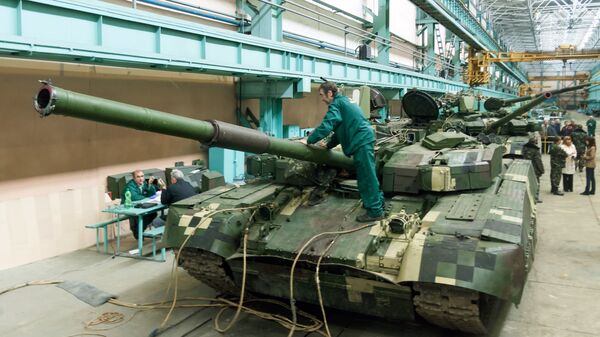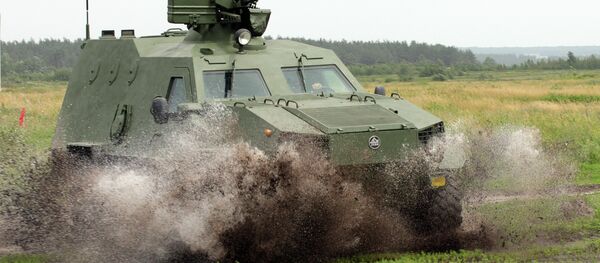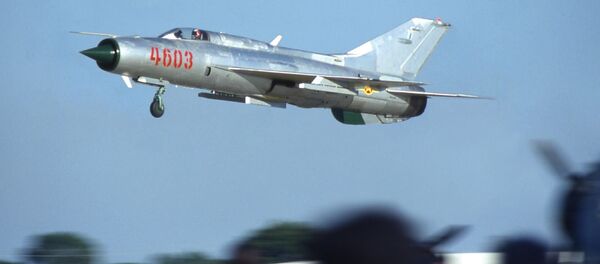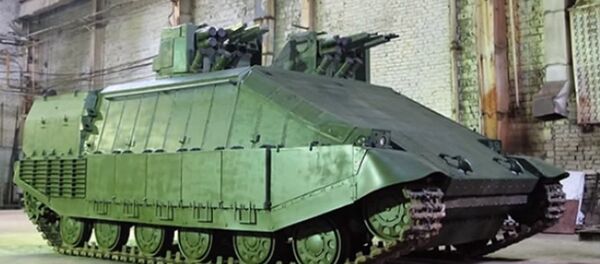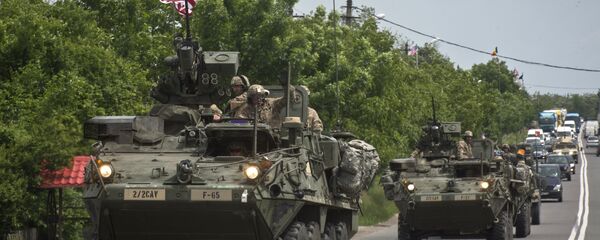"We have very intense cooperation when it comes to arms purchases," Chaly said, speaking to the US broadcaster, quoted by Russia's RIA Novosti news agency. "A defense forum has been held. I will not reveal all the details of the agreements that are planned. We plan to conduct 'defense days' here in America this fall."
"Most importantly," the diplomat emphasized, "we are not just talking about help with defensive lethal weapons, which are being considered in the 2017 budget, but about long-term strategic cooperation in bilateral arms procurement."
RIA Novosti recalled that at the moment, the US has limited its official military assistance to Kiev to non-lethal equipment, including uniforms. Additionally, American instructors have provided training for National Guardsman at the Yavoriv training ground in the western Ukrainian region of Lviv.
Intrigued by the diplomat's remarks, Russia's Svobodnaya Pressa online newspaper asked the obvious question: "what, in fact, does the Ukrainian defense industry have which would be of interest to the Americans today, if, as Chaly says, the two sides are talking about 'mutual arms trade'? And what can the Ukrainians offer to third countries?"
This is especially interesting in light of the recent scandals around the faulty Ukrainian military equipment provided to countries including Croatia, Iraq and India, the resource added.
Asked to comment on the ambassador's sensational announcement, Vladimir Evseev, the head of the department of Eurasian Integration and Development of the SCO at the CIS Institute, told the online newspaper that in practice, Ukrainian defense contractors are pretty limited in what they can offer the Americans.
In other words, the analyst noted, "Ukraine has lost the ability to enter the marketplace with ready-made weapons. The serious production of rocketry has virtually stopped. The country virtually doesn't have an aviation industry anymore. In this case, it may be possible to promote sales, but what do they have to sell?"
At the same time, Evseev pointed out, Ukraine's defense industry has recently faced serious problems with the sale of defective equipment. "And the countries to which the weapons were sold, with American help, eventually refused to sign long-term contracts, or simply returned the junk to the manufacturer."
But when it comes to finished products, "especially high quality ones, there's simply no grounds for discussion. And I do not believe the Americans will do it, because they do not want to discredit themselves."
Unfortunately, Evseev noted, "Ukraine's military-industrial complex is rapidly fragmenting; that's the biggest problem today – moving from producing finished weapons systems to producing individual components for weapons, or the production of very simple weapons, such as grenade launchers. Or we can recall the case of Ukrainian steel being supplied to the Islamists in Syria for vehicle armor."
As far as major systems are concerned, Ukraine has certain capabilities, recently creating armored infantry fighting vehicles and armored personnel carriers, for example. "Only it's necessary to understand that by their technical level, these are obsolete weapons. Second, Ukraine's defense industry is not engaged in the production of something new, for the most part, but engages in selling equipment out of deep storage. And not everyone needs such equipment."
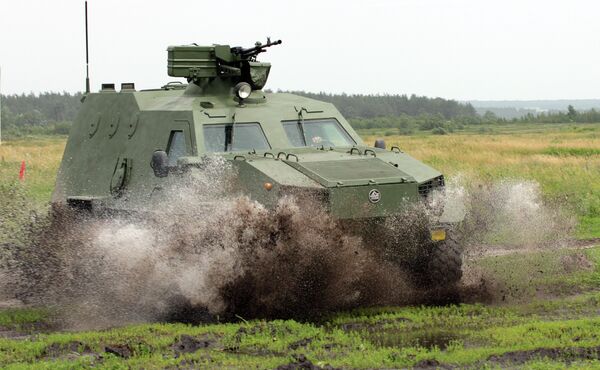
"In other words," Evseev said, "if they give it away almost for free, there may be some interest. But as far as modern, domestically-produced weaponry is concerned, as a rule it is of low reliability, and demands further improvements."
Given the fact that Ukraine has many talented arms engineers, but a severely weakened military industrial complex, the analyst suggested that right now, some governments are engaged in trying to recruit Ukrainian specialists.
"This, by the way, is something Turkey has actively engaged in. In particular, Ukrainian experts participated in the development of Turkey's new 'Altay' tank. Turkey also lacks good in-house specialists in rocketry, while the situation at Ukraine's Yuzhmash, where a huge number of employees have been left unneeded, has allowed Ankara to easily buy them."
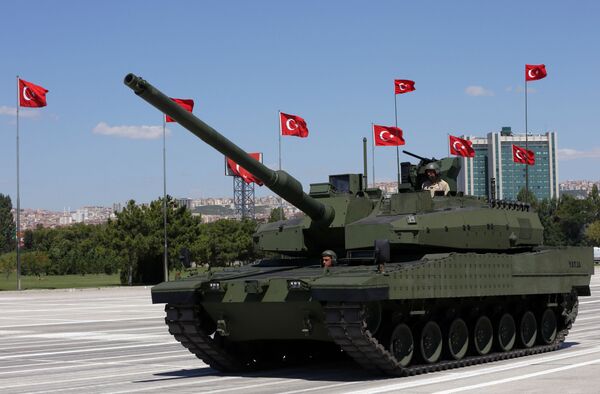
As far as the US is concerned, Evseev suggested that while they might buy some Ukrainian weapons components, this will not include ready-made systems. "Given that Ukraine has already largely discredited itself with its past deliveries, I think that even the US will find trouble reselling Ukrainian weapons," he added.
Given the low added value to weapons components compared to finished systems, the analyst explained that unfortunately, it's unlikely that new contracts, even with the USA, will save the Ukrainian defense industry, "especially given the current pace of the country's deindustrialization. In such circumstances, the production of even weapons components will decline."
The two-years of experience in the civil war in southeastern Ukraine, the analyst noted, has demonstrated that "Ukraine is not able to equip itself with even relatively simple equipment. And the equipment which is produced is either of low quality, or based on the assembly of equipment from abroad. Therefore, honestly, I cannot see what the Ukrainian defense industry could provide which would be of interest to the Americans. The country's defense sector has degraded so much over the years of independence that it's difficult to even imagine what we're talking about."
In the decades since independence, Denisentsev noted, Ukraine has faced two problems. The first was its close integration with the Russian military industry. The second was the fact that Ukraine's armed forces purchased very little Ukrainian-made production in the years since independence, given the huge stores of Soviet equipment left lying around following he country's collapse.
"And the defense industry must depend more than anything on the internal market." Russia, the analyst pointed out, was only able to get out of its own military industry sector's degradation in 2009, with the implementation of the State Arms Program. "If it had not been adopted, we would have found ourselves in about the same situation as Ukraine," the analyst noted.

